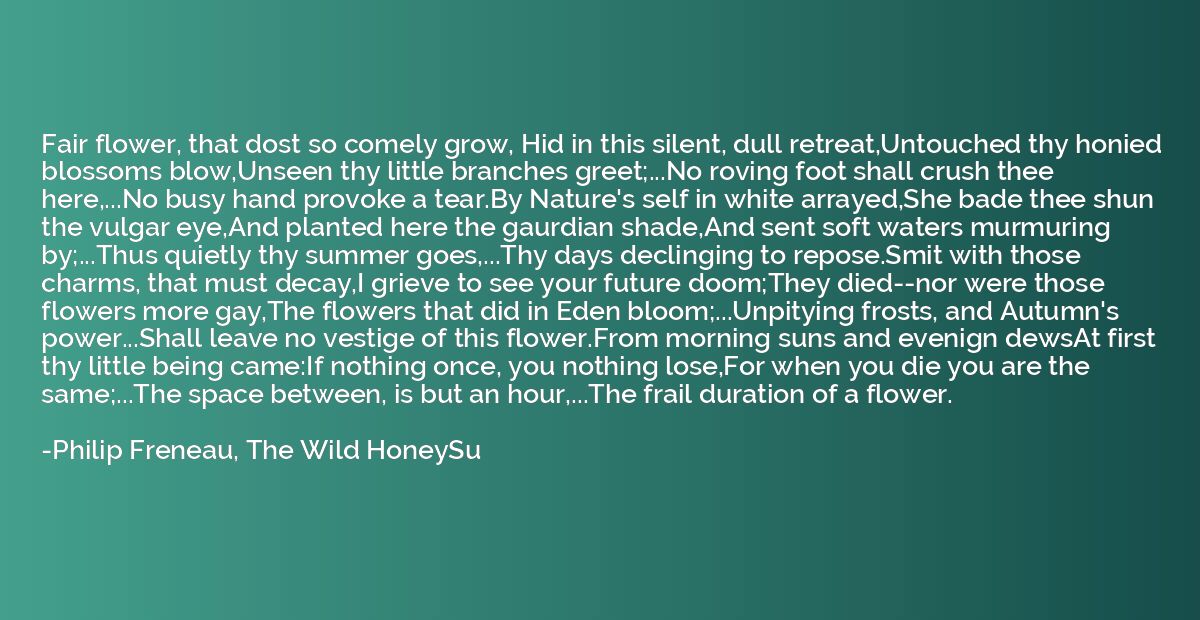Quote by Philip Freneau, The Wild HoneySu
Fair flower, that dost so comely grow, Hid in this silent, dull retreat,Untouched thy honied blossoms blow,Unseen thy little branches greet;...No roving foot shall crush thee here,...No busy hand provoke a tear.By Nature's self in white arrayed,She bade thee shun the vulgar eye,And planted here the gaurdian shade,And sent soft waters murmuring by;...Thus quietly thy summer goes,...Thy days declinging to repose.Smit with those charms, that must decay,I grieve to see your future doom;They died--nor were those flowers more gay,The flowers that did in Eden bloom;...Unpitying frosts, and Autumn's power...Shall leave no vestige of this flower.From morning suns and evenign dewsAt first thy little being came:If nothing once, you nothing lose,For when you die you are the same;...The space between, is but an hour,...The frail duration of a flower.

Summary
This quote, from the poem "To a Mountain Daisy" by Robert Burns, speaks of a beautiful flower growing in a secluded place. The poet admires its untouched blossoms and unseen branches, free from harm. The flower, dressed in white by nature, is protected by shade and accompanied by the soothing sound of flowing water. Despite its transient nature, the poet laments the eventual loss of its beauty. Ultimately, the poem reminds us of the brevity of life, comparing it to the brief existence of a flower.














